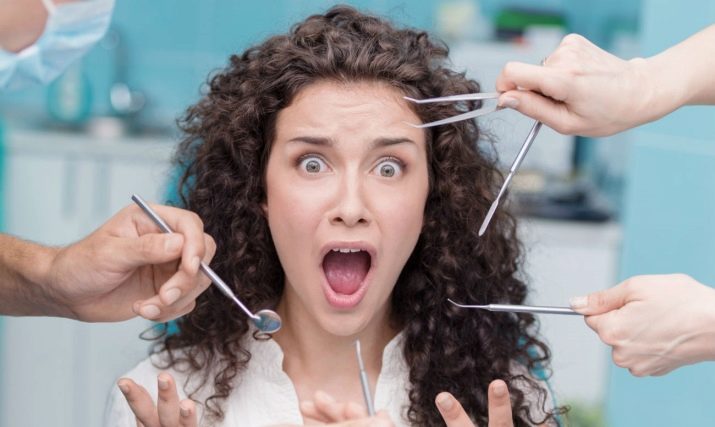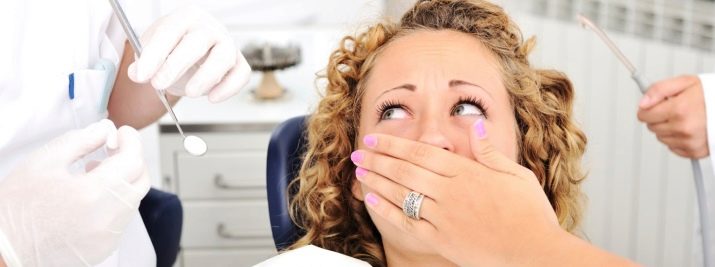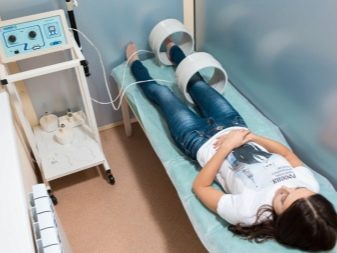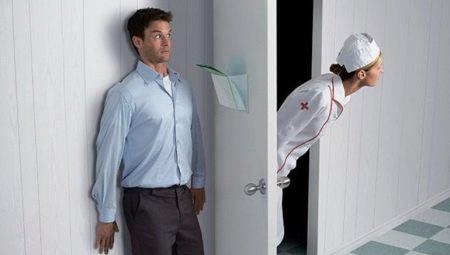There are people who cannot imagine their life without visiting doctors. They are ready to sit in lines and seek help from specialists with or without reason. It calms them and gives hope for health. Others, on the contrary, are afraid to even approach medical facilities. From one of their species, such individuals have an unpleasant feeling. And when it becomes necessary to visit the hospital, they panic. So the disease is manifested iatrophobia or nosomephobia.

Description and associated phobias
First of all, it should be noted that the name of the disease, which defines the fear associated with doctors, is translated from Greek as follows: ατρός - “doctor”, φόβος - “fear”. The disease, called nosocomophobia, practically does not differ in essence from iatrophobia and is interpreted as follows: fear of hospitals.
Ordinary people always experience excitement before going to the doctor. And this is a common occurrence. This easy fear is connected with simple human experiences for the state of one’s health. He understands that in the hospital he may be told unpleasant news about the disease.
A normal person accepts the inevitability of what is happening and tries not to “wind up” his consciousness, but simply to survive unpleasant moments. Otherwise, when an individual shows signs of jatrophobia, he begins to fear in advance of what has not happened.
And this condition is very dangerous because iatrophobes do not go to see a doctor until a critical moment arrives. As a result of the fear of doctors, the patient launches his disease, and serious problems begin to threaten his health.

Those people who already had negative experiences from visiting the hospital are most prone to such a condition as white coat syndrome. They even cause the panic of the most harmless manipulations. Measuring pressure during a medical examination can provoke hysteria and fainting.
People who have experienced pain while visiting a doctor are afraid to go to the appointment again. Specialists such as dentists note that their work causes patients the greatest anxiety. This is due to toothache, which is most sensitive due to the proximity of the nerve endings. Therefore, jatrophobes often also become stomatophobes. And these diseases are very intertwined.
That is why jatrophobia and nosocomophobia are considered collective diseases. They combine several types of phobias at once. Take, for example, such a specialist as a gynecologist. For most women, going to this doctor causes far from the best feelings. Other patients are afraid not so much of pain as getting infected with a dirty needle by some dangerous disease, such as AIDS. And this is a completely different type of phobia.

As a result, people with obsessive states may be afraid of all the specialists who work in the hospital at once. Even a nurse with a bucket and a rag will cause a jatrophobic feeling of fear. There is also such a category of persons who are afraid of manipulations carried out in treatment rooms. And all these combined fears can develop into known varieties of phobias: dentophobia (fear of dentists), tomophobia (panic state before surgery), trypanophobia (fear of injections), pharmacophobia (fear of taking medications).
All these fears cause irreparable damage to human health, therefore it is necessary to eliminate them in time. And for this, you first need to identify the causes of these phobias.

Causes of occurrence
All kinds of phobias do not occur out of the blue. This is especially true for the fear of hospitals and doctors. A person who panics at the mere thought of a medical facility may have had a negative experience visiting a doctor in the recent past.
In an adult, fear may be delayed in the event that he was given poor-quality help: carried out a painful manipulation, after which he almost became disabled. And this fear, on the one hand, is completely justified. And on the other hand, a strong personality will not wind itself up and bring its state to absurdity.
In the end, unpleasant situations happen in life, but they cannot be repeated every time you see a doctor. There is only one conclusion: suspicious people are more prone to various obsessive states than those who are used to not being distracted by negative moments and continuing to live fully and happily.
Doctors should also treat their patients accordingly. A real doctor who has taken the Hippocratic oath will not behave inappropriately. On the contrary, in order to set up a person for treatment, he must also be a psychologist who can relieve anxiety. And then the individual will begin to trust the attending physician.
It must be remembered that all our fears come from childhood, so children should especially be protected from unpleasant situations associated with visiting the hospital.

To this it is necessary to add that there are a number of prerequisites that lead any person to develop a phobia.
- Social circumstances. If a person is energetically dependent on the people around him, then he has a great risk of “contracting” fear of something. It is enough to hear any unpleasant story on the bus and suspiciousness will complete the process that has begun.
- Hereditary genetic circumstances. Parents suffering from obsessive conditions in 25% of cases pass on these conditions to their children. This is the opinion of scientists after numerous studies.
- Biochemical predisposition - This is another circumstance. What is it due to? Improper production of hormones serotonin, melatonin and adrenaline. You can also rank here individual dependence on alcohol or on drugs. These substances lead to the fact that a person ceases to adequately respond to this world. And doctors who try to help become enemies, as they interfere with getting dubious pleasures.
- This number of circumstances includes psychological reasons, which directly depend on the behavior of the individual and her character. So, we list them: low self-esteem, negative attitude towards oneself, unfavorable surroundings, vision of one’s future in black tones, self-isolation from society, excessive demands on one's self, and chronic fatigue syndrome.

Symptoms
A person suffering from the fear of doctors, even before visiting a medical institution, begins to wind up. Instead of doing everyday business, this individual scrolls in his mind the nonexistent future moments of visiting a doctor’s office. And each time projection produces pictures that look one worse than the other. Ultimately, the phobia grows to such a size that when the individual actually steps over the therapist’s office, he begins a panic attack.
In the body of the jatrophobic at the time of panic, a certain process starts, which contributes to the release of a huge amount of adrenaline. The body is unable to cope with it. And as a result, failures in terms of physical health occur. Serious symptoms are as follows:
- malfunctioning in breathing;
- the head begins to spin and hurt;
- the pressure may rise or fall strongly;
- dry mouth appears;
- the person begins to feel sick and vomiting may appear;
- excessive sweating is observed;
- vision deteriorates, speech becomes incoherent;
- there is an inadequate attitude to what is happening.

These manifestations are very dangerous for the health and life of the patient. Therefore, it is necessary to take measures to eliminate phobia and establish the work of the whole organism as a whole.
Methods of struggle
If jatrophobia manifests itself in a mild form, then you can cope with it yourself. To do this, you need to overpower yourself only once and get rid of the obsessive state. The main thing is to take the first step, and then it will not be so scary. Inspire yourself that going to a doctor’s appointment and treating a diseased organ is a vital necessity.
First, sign up with a therapist and go through all the recommended manipulations. After passing the tests, it will become definitely easier for you to overcome your fear and come to the doctor’s appointment. If you have very good results, then fear will recede on its own. If the tests indicate any deviation, then you will begin treatment, and this fact will also bring reassurance in the sense that after treatment everything will work out. Then why be afraid?
Another thing is when a phobia has already become uncontrollable. Then, to overcome the fear, you need to contact a specialist. He will identify the cause of the obsessive state and prescribe treatment. You may be offered the following methods: cognitive-behavioral therapy, auto-training, hypnosis, neuro-linguistic programming.
If the disease has acquired a neglected nature, then along with the above practices, you will be prescribed treatment with the help of drug therapy: antidepressants, tranquilizers etc. The use of drugs should be controlled by a highly qualified specialist.
It is he who can determine the correct diagnosis and select the necessary funds. Uncontrolled medication can lead to more serious consequences or death.

Working with a psychologist does not give quick results, but they are more effective and practically do not lead to relapse. The specialist will offer you a drink of soothing infusions of herbs and will give the following recommendations.
- Samurai technique: we stretch out the chin and take a step towards danger. For a greater effect, take two breaths and two exhalations.
- Visualize fear. To do this, we monitor in which place the body weakens as soon as the panic begins (arms, legs, head, back). At the time of the crisis, you need to strain the part of the body that is most vulnerable.
- Introducing ourselves as a superhero, who is not afraid of anything. As soon as a reason for panic appears, we “turn on” the courage and rely on it.
- Draw your fear on paper. Draw it as you want and draw what you want. Maybe your fear appears to you in the form of a snake. As soon as the drawing is ready, tear it, putting all your emotions into it.
- Before you get to the doctor’s office, you need to "be afraid." Solitude in a secluded place and begin to tremble violently. Your muscles will quickly tire and fear will also recede. True, this method is difficult to execute in a crowded place, but one who has decided to get rid of a phobia should be decisive in everything.
- With fear, sports help well. It takes a lot of energy. When a person is exhausted, he wants to think more about sleep than about fear.
- Physiotherapy relaxes the brain and muscles. Treatment with current, wave radiation helps to establish harmony well.
In addition, physiotherapy rooms are organized in outpatient facilities. And this is another incentive to come to the understanding that it is not worth thoughtlessly fearing such institutions as a hospital.


Jatrophobia in children
The behavior of children in the hospital and the attitude of children to the hospital largely depend on the mood of adults. It is they who must make sure that the child ceases to be afraid of doctors. To do this, take the following preventative measures.
- Explain to your child in advance that you are going to the doctor tomorrow. Answer his questions in detail and very calmly.
- If your child is worried, let him speak up. Let him talk about his concerns. Once he does, develop them with logical explanations.
- When you go into the office, then behave calmly. Then your baby will understand that there is nothing to worry about in the doctor’s office.
- Introduce your baby to medical activities. Play in the hospital, for this buy a special game kit. Translate all your actions into jokes and explain why you need to give an injection or see the condition of the throat.
As soon as the child feels that your mood does not cause anything dangerous to his life, he will calm down and will no longer cry in the pediatrician’s office.

See the next video for more on jatrophobia.











